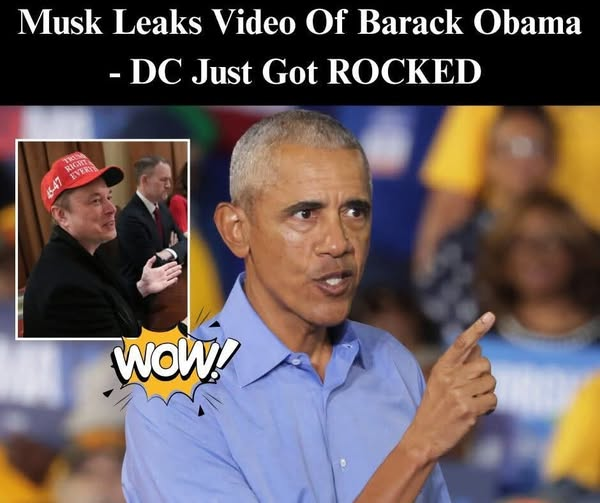
Musk Defends Government Reform Plan by Echoing a Message from the Past
Elon Musk, known for his bold ventures and candid online presence, has once again sparked debate—this time defending his controversial Department of Government Efficiency (DOGE) initiative. Amid a growing wave of criticism over DOGE’s scope and goals, Musk turned to history to make his case, drawing a surprising parallel to a decade-old presidential campaign.
On his social media platform X, Musk shared a 2011 video featuring then-President Barack Obama unveiling a government reform effort aimed at cutting inefficiency and wasteful spending. The initiative, called the “Campaign to Cut Waste,” mirrors the core objectives behind Musk’s DOGE program. Musk captioned the clip succinctly: “Sounds exactly like DOGE.”
Revisiting a Familiar Call for Reform
Musk’s timing is no coincidence. DOGE, announced earlier this year, aims to boost transparency, reduce bureaucracy, and root out inefficiencies in public agencies. Critics have questioned whether such a plan is necessary or feasible, arguing past reforms failed to deliver lasting change. Musk’s post strikes back at this skepticism by invoking historical precedent, reminding us that government reform is neither new nor partisan—it’s a persistent, urgent challenge.
The 2011 video features President Obama humorously highlighting government waste, such as a taxpayer-funded website dedicated to a folk music group of forest rangers—the “Fiddlin’ Foresters.” Yet beneath the humor was a serious message: government should operate as efficiently as families manage their budgets.
“Just as families are living within their means, government should too,” Obama declared. “No amount of waste is acceptable—not when it’s your money.”
Obama emphasized the campaign was not only about trimming fat but about transforming how government functions. Vice President Joe Biden was appointed to lead the initiative, with Obama confidently noting, “Nobody messes with Joe.” Biden reinforced this vision, promising a new era of transparency and accountability:
“We’re not just eliminating fraud and waste,” Biden said, “we hope to be instilling an entirely new culture.”
Bridging Past and Present Reform Efforts
By resurfacing this video, Musk highlights striking similarities between Obama’s “Campaign to Cut Waste” and his own DOGE initiative. Both focus on boosting government performance and eliminating inefficiency—challenges that have persisted across different eras and leadership styles.
While Obama’s campaign was part of a larger governmental push during his first term, Musk’s DOGE is a more targeted, privately driven effort. Known for critiquing wasteful spending and bureaucracy across industries, Musk’s push for streamlined systems now extends into public policy.
Mixed Reactions and Ongoing Debate
Musk’s repost sparked diverse reactions. Some praised the historical comparison, appreciating how the pursuit of efficiency transcends political divides. Others pointed out that Obama’s 2011 campaign, despite its ambition, struggled to achieve lasting reform—highlighting the deep-rooted difficulty of changing large institutions.
This renewed discussion also raised questions about how to measure success. Critics doubt the impact of past reforms, while supporters argue that even small gains accumulate over time. DOGE’s fate may similarly hinge on whether it moves beyond concept into real, tangible improvements.
A Shared Vision for Accountability
Though Musk’s style can be unconventional, his core message through DOGE resonates broadly: government should operate with transparency, efficiency, and purpose. By drawing on a past president’s similar call to action, Musk suggests that effective governance isn’t about politics—it’s about service.
Whether DOGE will fulfill its promise remains uncertain. But Musk’s revival of this 2011 message reminds us that the quest for better government is ongoing—spanning administrations, ideologies, and decades.
As the conversation continues, one thing is clear: the desire for systems that work not only efficiently but meaningfully—delivering real value to the people they serve—remains a universal goal.